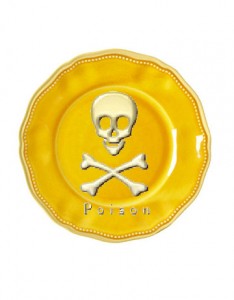 After years of sweeping the issue under the rug and hoping no one would notice, the FDA has now finally admitted that chicken meat sold in the USA contains arsenic, a cancer-causing toxic chemical that's fatal in high doses. But the real story is where this arsenic comes from: It's added to the chicken feed on purpose!
After years of sweeping the issue under the rug and hoping no one would notice, the FDA has now finally admitted that chicken meat sold in the USA contains arsenic, a cancer-causing toxic chemical that's fatal in high doses. But the real story is where this arsenic comes from: It's added to the chicken feed on purpose!
Even worse, the FDA says its own research shows that the arsenic added to the chicken feed ends up in the chicken meat where it is consumed by humans. So for the last sixty years, American consumers who eat conventional chicken have been swallowing arsenic, a known cancer-causing chemical. (http://www.phillyburbs.com/news/loc...)

 Health Glance
Health Glance The latest warning coming from British intelligence that al-Qaeda and other political organizations could contaminate the food supply is part of a continuing plot line that hides the obvious: our food already has been poisoned under the auspices of oversight agencies who have been complicit in the very real threats to the public food supply. The following toxins offered into the marketplace by corporate-government collusion have contributed to far more sickness and death than E. coli or salad bar terrorists ever will . . . unless of course the terrorists have bioengineered a superbug, or it has escaped from a bioweapons lab like the one at Fort Detrick, Maryland.
The latest warning coming from British intelligence that al-Qaeda and other political organizations could contaminate the food supply is part of a continuing plot line that hides the obvious: our food already has been poisoned under the auspices of oversight agencies who have been complicit in the very real threats to the public food supply. The following toxins offered into the marketplace by corporate-government collusion have contributed to far more sickness and death than E. coli or salad bar terrorists ever will . . . unless of course the terrorists have bioengineered a superbug, or it has escaped from a bioweapons lab like the one at Fort Detrick, Maryland. A drug that farmers have given to chickens for decades is being pulled off the market after federal scientists found a potentially carcinogenic form of arsenic in the livers of animals treated with the substance, officials announced Wednesday.
A drug that farmers have given to chickens for decades is being pulled off the market after federal scientists found a potentially carcinogenic form of arsenic in the livers of animals treated with the substance, officials announced Wednesday. Cancer medicines desperately needed by sick children and adults are in short supply, undermining the ability of U.S. doctors to administer treatments, top oncologists warned this week.
Cancer medicines desperately needed by sick children and adults are in short supply, undermining the ability of U.S. doctors to administer treatments, top oncologists warned this week. Wyldewood Cellars, a Kansas-based producer and distributor of elderberry juice, is the latest raid target of the US Food and Drug Administration (FDA), which recently sent US marshals to the company's winery in Mulvane to confiscate the "unapproved drug." According to the rogue agency, Wyldewood had violated provisions in the US Federal Food, Drug, and Cosmetic Act (FFDCA) that restrict health claims for food items, warranting the sudden invasion.
Wyldewood Cellars, a Kansas-based producer and distributor of elderberry juice, is the latest raid target of the US Food and Drug Administration (FDA), which recently sent US marshals to the company's winery in Mulvane to confiscate the "unapproved drug." According to the rogue agency, Wyldewood had violated provisions in the US Federal Food, Drug, and Cosmetic Act (FFDCA) that restrict health claims for food items, warranting the sudden invasion. Exposure to the hormone-disrupting chemical Bisphenol A (BPA) has been underestimated, because prior lab tests have looked at single exposures rather than daily diets, the University of Missouri reports.
Exposure to the hormone-disrupting chemical Bisphenol A (BPA) has been underestimated, because prior lab tests have looked at single exposures rather than daily diets, the University of Missouri reports. This particular e.coli variation is a member of the O104 strain, and O104 strains are almost never (normally) resistant to antibiotics. In order for them to acquire this resistance, they must be repeatedly exposed to antibiotics in order to provide the "mutation pressure" that nudges them toward complete drug immunity.
This particular e.coli variation is a member of the O104 strain, and O104 strains are almost never (normally) resistant to antibiotics. In order for them to acquire this resistance, they must be repeatedly exposed to antibiotics in order to provide the "mutation pressure" that nudges them toward complete drug immunity.






























